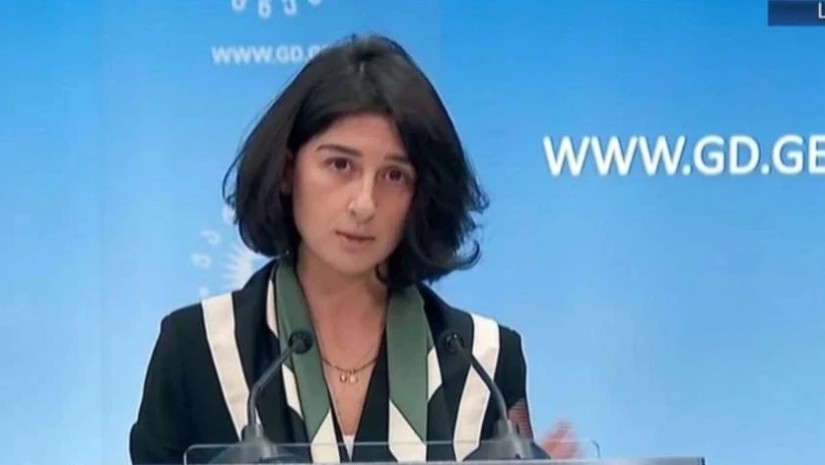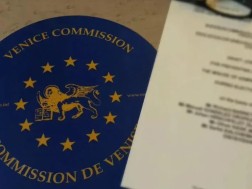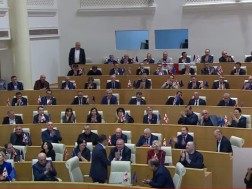“The Venice Commission opinion shows the absence of any legal or other arguments against the Transparency Law,” said Salome Kurasbediani, the parliamentary majority member, at a briefing held at the Georgian Dream office.
Kurasbediani asserted that the Commission’s evaluation lacked legal grounding and was politically biased.
“In the conclusion, we encounter numerous unsubstantiated and contradictory legal arguments, as well as several gross distortions of facts, which further contribute to the radicalization of specific groups,” Kurasbediani stated.
Kurasbediani pointed out specific issues in the Commission’s report, beginning with what she termed as “false factual information” regarding the public availability of the final text of the law. She explained that the clarifications were made during the second reading at the plenary session of Parliament and were immediately published on the Parliament’s website. She also addressed the Commission’s claim that the law was passed swiftly without adequate public participation. Kurasbediani refuted this, emphasizing that the draft law underwent standard procedural reviews over several weeks, with extensive committee and plenary sessions involving opposition parties and non-governmental organizations (NGOs). Additionally, Kurasbediani criticized the Commission for portraying the protests against the law as entirely peaceful, ignoring instances of violence against law enforcement and property damage.
“However, I would still like to address a few issues:
First: The Venice Commission notes that current Georgian legislation already mandates the registration of the finances of non-governmental organizations and the submission of reports. It references the Civil Code of Georgia, the Tax Code of Georgia, and other normative acts. In reality, none of the current norms cited by the Venice Commission ensure the NGO sector’s obligation to fill out financial declarations or the transparency of their finances. Therefore, the commission’s claim that the financial aspects of grants received by NGOs are transparent is untrue.
Second: The Venice Commission states that the Georgian law on transparency has similarities with Russian, Hungarian, and Kyrgyz laws, but only dedicates three lines to this issue in paragraph 38 of the conclusion without further legal reasoning. This manipulative and unsubstantiated approach seeks to stigmatize the Georgian law.
Third: Paradoxically, the Venice Commission, in paragraphs 31, 62, 83, and 99 of the conclusion, argues that non-governmental organizations cannot be required to be transparent. This stance directly contradicts the June 18, 2020 judgment by the Grand Chamber of the Court of Justice of the European Union in the case of Hungary, which states in paragraph 79: “…non-governmental organizations, depending on their objectives and the funds available to them, can have a significant impact on public life and public debate. Accordingly, ensuring the transparency of the finances of these organizations represents a superior public interest.”
Based on all the above points, it is clear that the Venice Commission’s conclusion is filled with political messages, lacks legal and professional justification, and contains numerous factual inaccuracies,” said Salome Kurasbediani.























